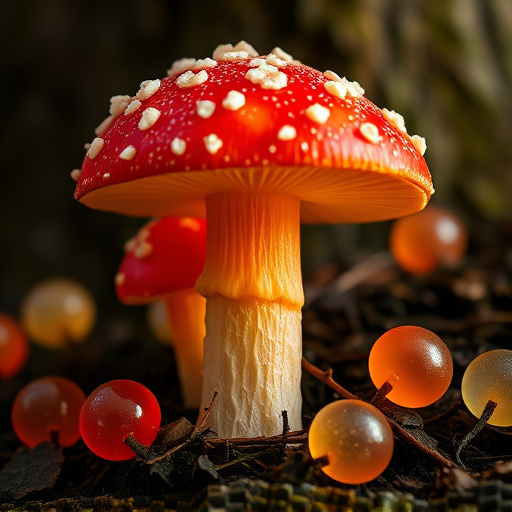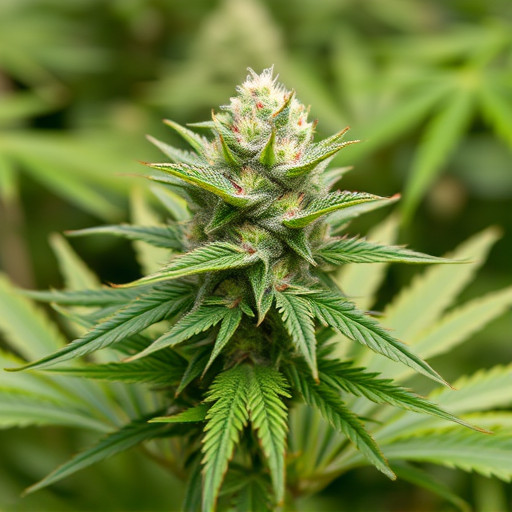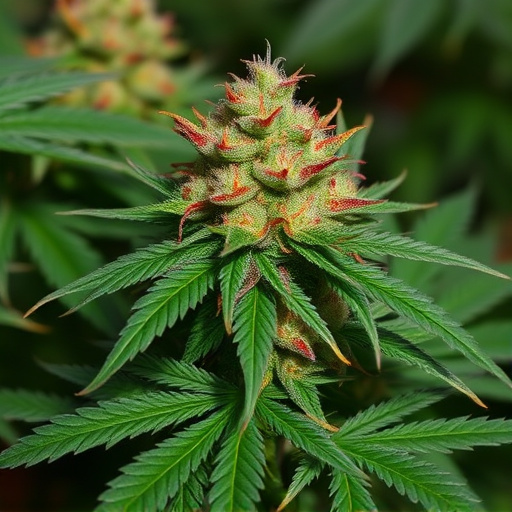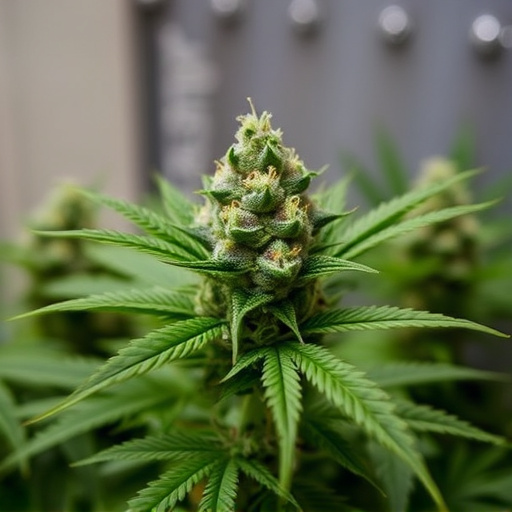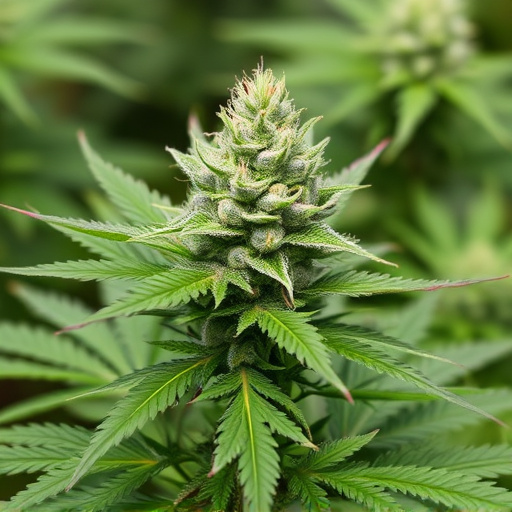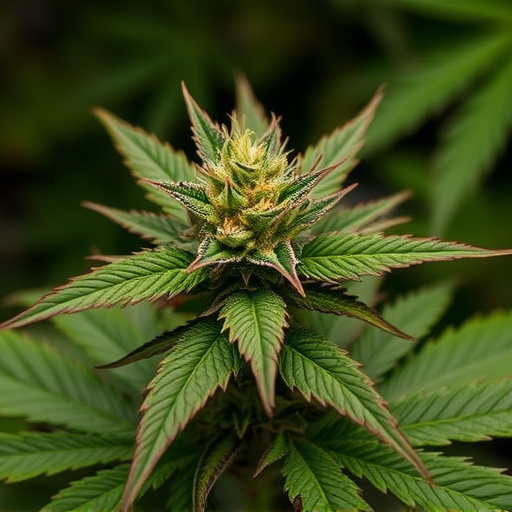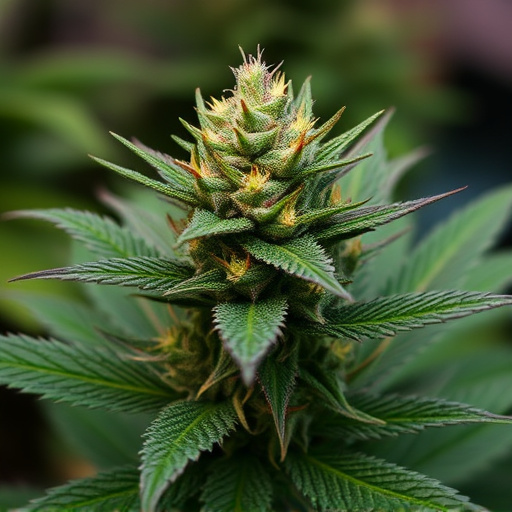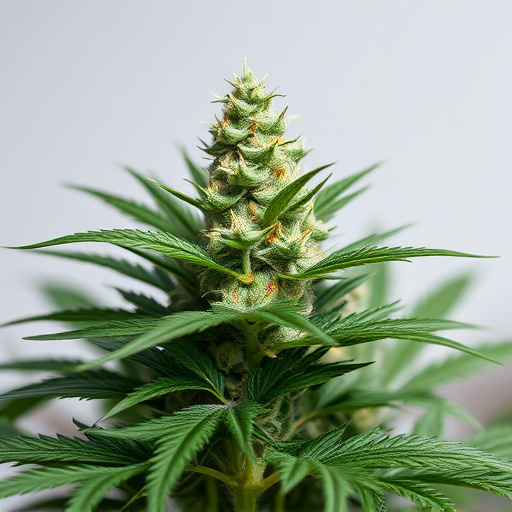Cannabis strains tailored for Post-Traumatic Stress Disorder (PTSD) target symptoms through interaction with the body's endocannabinoid system, offering potential relief from anxiety, sleep disturbances, and flashbacks via high CBD or balanced THC/CBD ratios. While promising, individual responses vary, necessitating cautious treatment and professional consultation to determine suitable dosage and strain for personalized therapy using cannabis strains for PTSD.
“Exploring the potential of cannabis as a treatment for Post-Traumatic Stress Disorder (PTSD) has gained significant attention. While its therapeutic benefits are discussed, understanding safe dosage limits is crucial. This article delves into the complex relationship between cannabis and PTSD, examining scientific evidence supporting its efficacy. We’ll guide you through finding the right balance, offering considerations and recommendations for a safe dosage, especially when exploring specific cannabis strains for PTSD management.”
- Cannabis and PTSD: Understanding the Connection
- The Science Behind Cannabis' Efficacy for PTSD Treatment
- Finding a Safe Dosage: Considerations and Recommendations
Cannabis and PTSD: Understanding the Connection
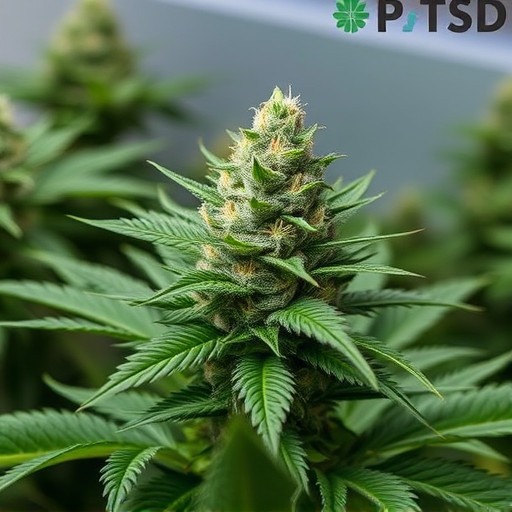
Cannabis has been a subject of interest in the medical community, especially regarding its potential to manage various conditions. One such connection is between cannabis and PTSD (Post-Traumatic Stress Disorder). Research suggests that certain cannabis strains for PTSD may offer relief from symptoms, including anxiety, sleep disturbances, and flashbacks. The active compounds in cannabis, particularly THC (Tetrahydrocannabinol) and CBD (Cannabidiol), interact with the body’s endocannabinoid system to regulate mood, memory, and perception of pain.
For individuals dealing with PTSD, specific cannabis strains known for their high CBD content or balanced ratios of THC and CBD have shown promise in reducing the intensity of traumatic memories and triggering emotions associated with the disorder. However, it’s crucial to approach this treatment option cautiously due to the variability in cannabis effects among users. Consulting healthcare professionals is essential to determine a suitable dosage and strain that aligns with individual needs when considering cannabis as a complementary therapy for PTSD.
The Science Behind Cannabis' Efficacy for PTSD Treatment
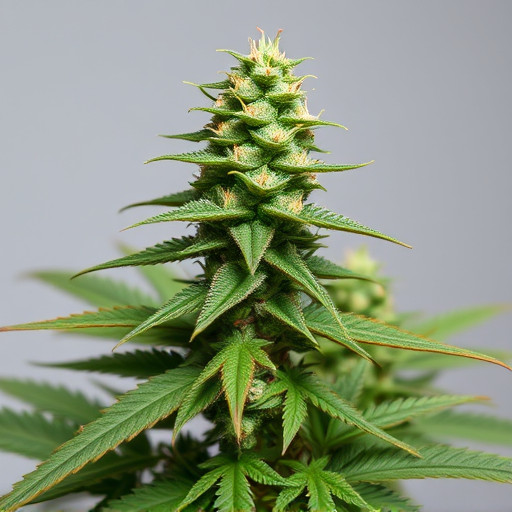
Cannabis has gained attention for its potential therapeutic effects, especially in managing Post-Traumatic Stress Disorder (PTSD). Scientific research is uncovering the mechanisms behind cannabis’ efficacy in treating PTSD symptoms. One key component is the interaction between cannabinoids, such as tetrahydrocannabinol (THC) and cannabidiol (CBD), and the endocannabinoid system present in the human brain. This system plays a crucial role in regulating mood, memory, and stress responses.
Cannabis strains for PTSD often focus on high CBD content or specific ratios of THC to CBD, as these may provide anti-anxiety, anti-inflammatory, and neuroprotective effects. Studies suggest that CBD can help reduce the intensity of flashbacks, nightmares, and anxiety associated with PTSD, while THC may facilitate mood regulation and appetite stimulation, improving overall well-being. The science behind cannabis’ potential for PTSD treatment is evolving, offering hope for those seeking alternative solutions to manage their symptoms.
Finding a Safe Dosage: Considerations and Recommendations
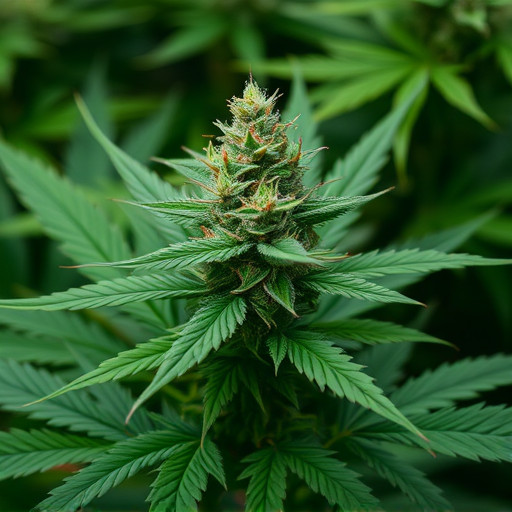
Finding a safe dosage of cannabis for conditions like PTSD involves careful consideration and personalized approaches. While cannabis has shown promise in treating symptoms, there’s no one-size-fits-all solution. The right dose depends on various factors including individual tolerance, preferred effects, and specific symptoms being addressed. For PTSD, some individuals may benefit from low-THC strains known for their calming and anxiolytic properties. Starting with microdoses – very small amounts – can allow users to gauge their reaction without experiencing potent effects. As they adjust, they can increase dosage gradually while monitoring how the cannabis interacts with their body and mind.
Professional guidance is invaluable in this process. Consulting a healthcare provider who specializes in cannabis medicine can help individuals determine safe starting points and make adjustments as needed. This ensures a tailored approach that prioritizes both effectiveness and minimizing potential side effects, especially for sensitive conditions like PTSD. Research on cannabis strains for PTSD continues to evolve, highlighting the importance of staying informed and working closely with medical professionals.
While cannabis shows promise in treating Post-Traumatic Stress Disorder (PTSD), determining a safe dosage remains a complex challenge. The optimal dose varies greatly among individuals, influenced by factors like tolerance, metabolism, and specific symptoms. Current research points towards low to moderate doses of specific cannabis strains known for their high CBD content or balanced THC:CBD ratios as potentially effective and safer options for PTSD management. However, more comprehensive studies are needed to establish definitive dosage guidelines. Until then, personalized medicine approaches, involving careful monitoring and adjustments under professional guidance, are crucial for ensuring safety and efficacy in using cannabis for PTSD treatment.






